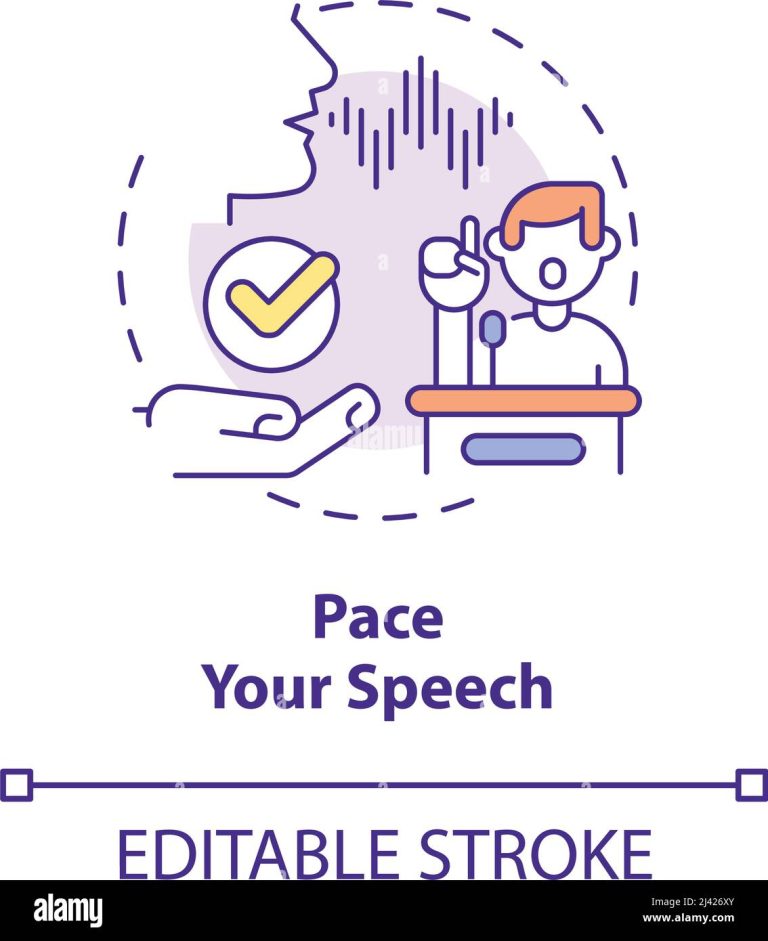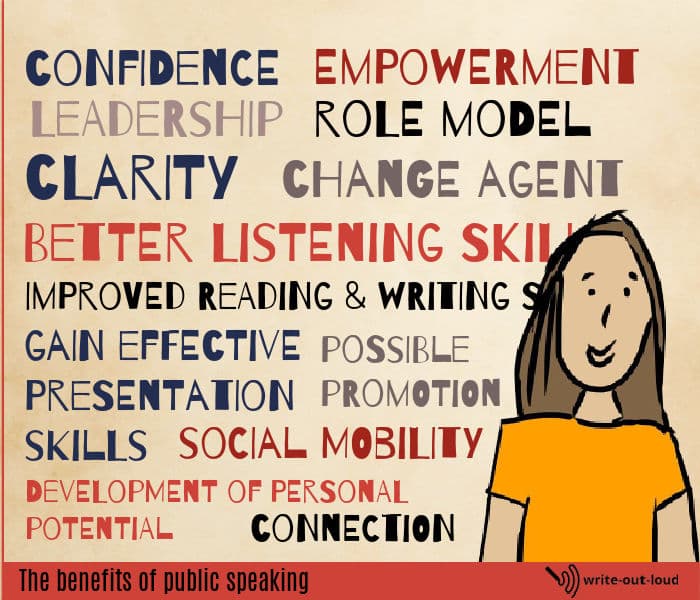Articulation In Public Speaking
Do you want to know how to improve your public speaking skills? Well, let’s start with a crucial element: articulation in public speaking. Articulation refers to how clearly and distinctly you pronounce your words when addressing an audience. And trust me, it’s an essential skill that can make a big difference in delivering your message effectively. So, let’s dive in and explore the art of articulation together!
When we talk about articulation in public speaking, we’re talking about speaking with clarity and precision. It’s like putting on a pair of special glasses that make your words crystal clear to your listeners. The way you pronounce each word determines whether your message is understood or gets lost in a sea of confusion. The better your articulation, the easier it is for your audience to follow along and connect with what you’re saying.
Think of articulation as the superstar of spoken communication. It helps you to enunciate each word with intention, so your message comes across loud and clear. It’s about giving each word its proper moment in the spotlight, ensuring that your audience can grasp the full meaning and impact of what you’re saying. With great articulation, you’ll captivate your listeners, leaving them spellbound by your words.
Now that we’ve established the importance of articulation in public speaking, let’s delve deeper into the techniques and strategies that can help you improve. So, grab a seat, get ready to unleash the power of your words, and let’s embark on this exciting journey of mastering articulation in public speaking!
- Warm up your mouth and tongue with exercises like tongue twisters.
- Slow down your speech and focus on pronouncing each word correctly.
- Pay attention to your breathing and use proper breath control.
- Practice speaking in front of a mirror to monitor your articulation.
- Record yourself speaking and listen for any areas that need improvement.
Mastering articulation will enhance your public speaking skills and make you a more engaging and confident communicator.

The Importance of Articulation in Public Speaking
Public speaking is a powerful tool that allows individuals to convey their ideas, inspire change, and connect with an audience. And one of the key elements that can make or break a speaker’s impact is articulation. Articulation refers to the clarity and precision with which words and sounds are pronounced, making it easier for the audience to understand and engage with the speaker’s message. In this article, we will explore the significance of articulation in public speaking and provide tips to improve this essential skill.
The Impact of Clear Articulation
Clear articulation plays a vital role in public speaking. When a speaker’s words are enunciated accurately and distinctly, it enhances their credibility and professionalism. It conveys that the speaker has taken the time to prepare their message and values their audience’s understanding. By maintaining clarity and precision, a speaker can better connect with their audience and effectively communicate their ideas.
Furthermore, clear articulation allows the audience to follow along with the speaker’s message effortlessly. It ensures that the speaker’s words are easily comprehensible and minimizes confusion or misunderstandings. This, in turn, helps to maintain the audience’s engagement and interest throughout the speech or presentation.
Additionally, proficient articulation also contributes to the overall delivery and flow of a speech. The ability to pronounce words skillfully adds rhythm and resonance to one’s voice, creating a more engaging and impactful delivery. It enables the speaker to emphasize key points, convey emotions effectively, and make their message more memorable.
Tips for Improving Articulation in Public Speaking
1. Practice Tongue Twisters: Tongue twisters are a fun and effective way to improve articulation. Regularly practicing tongue twisters such as “She sells seashells by the seashore” helps with the precision and clarity of pronunciation.
2. Slow Down: Speaking too fast can lead to mumbled words and slurred speech. Practice slowing down your speech, giving each word the attention and clarity it deserves.
3. Enunciate Consonants: Pay attention to the pronunciation of consonant sounds, as they often determine the clarity of words. Practice pronouncing these sounds accurately and distinctly.
4. Use Vocal Warm-ups: Just as singers warm up their voices before a performance, speakers can benefit from vocal warm-ups. These exercises help to loosen the muscles involved in speech production and improve articulation.
5. Record and Listen: Record yourself speaking or giving a presentation and listen back to identify areas where your articulation can be improved. Pay attention to specific words or sounds that may be difficult to understand.
6. Seek Feedback: Ask a trusted friend, colleague, or mentor to provide honest feedback on your articulation. They can point out any areas where you may need improvement and offer helpful suggestions.
7. Practice Breathing Techniques: Deep breathing exercises can help with proper airflow and control during speaking. By practicing proper breathing techniques, you can improve the clarity and projection of your voice.
The Benefits of Articulation in Public Speaking
1. Enhances Understanding: Clear articulation ensures that the audience can understand and follow your message without confusion or misinterpretation.
2. Builds Credibility: Proficient articulation showcases professionalism and expertise, enhancing your credibility as a speaker.
3. Increases Engagement: When the audience can easily understand and follow your speech, it keeps them engaged and attentive.
4. Enhances Memorability: Well-articulated speeches are more memorable, as the audience can retain and recall key points.
5. Improves Communication Skills: Developing good articulation skills also improves overall communication skills, helping you express yourself clearly in various situations.
6. Boosts Confidence: With improved articulation, you’ll feel more confident in your ability to effectively deliver your message to others.
Articulation vs. Pronunciation: Understanding the Difference
While articulation and pronunciation are closely related, they are not the same thing. Articulation refers to the clarity and precision with which words and sounds are pronounced, focusing on the individual sounds and their combination in speech. Pronunciation, on the other hand, pertains to the correct way of saying a word or uttering its sounds within a specific language or dialect.
In public speaking, both articulation and pronunciation are crucial. Articulation ensures clarity and precision, while pronunciation ensures accuracy and adherence to language rules. By mastering both skills, speakers can effectively communicate their message while connecting with their audience on a deeper level.
Common Articulation Challenges and How to Overcome Them
1. Mumblin
Key Takeaways: Articulation in Public Speaking
- Articulation is the clarity and precision of speech.
- Focus on pronouncing each word clearly for better communication.
- Practice tongue twisters to improve your articulation skills.
- Slow down your speech to give yourself time to articulate properly.
- Pay attention to your breath control to enhance articulation.
Frequently Asked Questions
When it comes to public speaking, articulation plays a crucial role in delivering a clear and effective message. Here are some commonly asked questions about articulation in public speaking:
1. How does articulation affect public speaking?
Articulation refers to how clearly and distinctly you pronounce your words. Good articulation enhances the audience’s understanding of your message and allows you to effectively convey your ideas. It helps you project confidence and credibility, making your speech more engaging and persuasive.
On the other hand, poor articulation can hinder your communication. It may lead to misunderstandings, confusion, or disinterest from the audience. By focusing on improving your articulation skills, you can enhance your public speaking abilities and leave a lasting impact on your audience.
2. What are some tips to improve articulation in public speaking?
Improving your articulation skills is essential for effective public speaking. Here are a few tips to help you enhance your articulation:
First, practice speaking slowly and clearly. Take your time to pronounce each word, giving it the attention it deserves. Second, focus on enunciating consonant sounds properly to avoid mumbling or slurring. Third, engage in exercises that target specific articulators such as your tongue, lips, and jaw to increase their flexibility and strength. Finally, record yourself speaking and listen back to identify any areas for improvement. Consistent practice and self-awareness will help you develop better articulation skills over time.
3. How can I overcome nervousness that affects my articulation during public speaking?
Nervousness is common during public speaking and can impact your articulation. Here are a few strategies to overcome nervousness and maintain clear articulation:
First, be well-prepared and thoroughly familiarize yourself with your speech or presentation material. This will boost your confidence and reduce anxiety. Second, practice relaxation techniques such as deep breathing or visualizing a successful performance to calm your nerves. Third, rehearse your speech in front of a mirror or with a trusted friend to gain constructive feedback and build confidence in your delivery. Finally, remember that mistakes are a natural part of public speaking and don’t let them undermine your confidence. Focus on delivering your message clearly and effectively, and the nervousness will gradually diminish.
4. Are there any vocal exercises to improve articulation?
Yes, there are several vocal exercises you can practice to improve your articulation:
Tongue twisters are a great way to warm up and exercise the muscles responsible for articulation. Repeat phrases like “She sells seashells by the seashore” or “Peter Piper picked a peck of pickled peppers.” Tongue twisters challenge your articulators and help improve clarity and speed of speech.
Another exercise is exaggerating pronunciation. Overemphasize the sounds in words and practice elongating vowels. Focus on pronouncing each syllable clearly. This exercise helps you develop control over your articulators and enhances your overall speech clarity. Consistent practice of these exercises will gradually improve your articulation skills.
5. How important is non-verbal communication in conjunction with articulation?
In public speaking, non-verbal communication, which includes body language, facial expressions, and gestures, is just as important as articulation. It complements your spoken words and helps convey your message more effectively. Non-verbal cues can enhance the audience’s understanding and engagement with your speech.
For example, maintaining eye contact with the audience establishes a connection and shows confidence. Appropriate hand gestures can emphasize key points and make your speech more dynamic. Additionally, your posture, facial expressions, and overall body language should align with the tone and content of your message, reinforcing its impact. By combining effective articulation with well-executed non-verbal communication, you can create a powerful and memorable public speaking experience.
How to be More Articulate – 8 Powerful Secrets
Summary
Here’s a quick recap on articulation in public speaking for our 13-year-old readers. Articulation means speaking clearly, pronouncing words correctly, and expressing your thoughts effectively. It’s important because it helps others understand and connect with what you’re saying. One way to improve articulation is by practicing tongue twisters and speaking slowly and clearly.
It’s also crucial to remember to breathe properly, use facial expressions, and practice good posture while speaking. By doing this, you’ll be able to engage your audience and make your speech more captivating. So, keep practicing, and soon you’ll become a confident and articulate public speaker.



